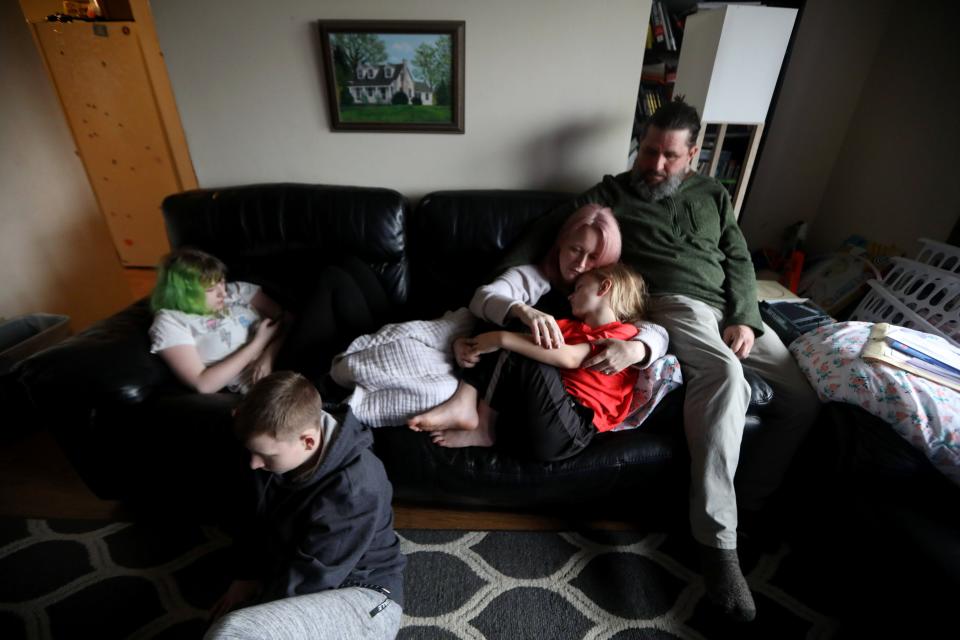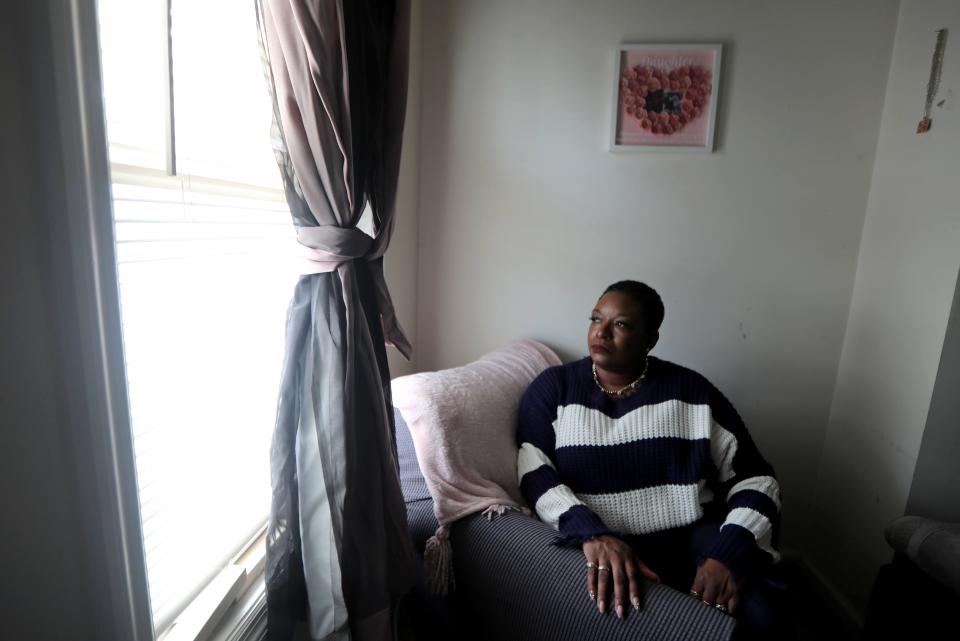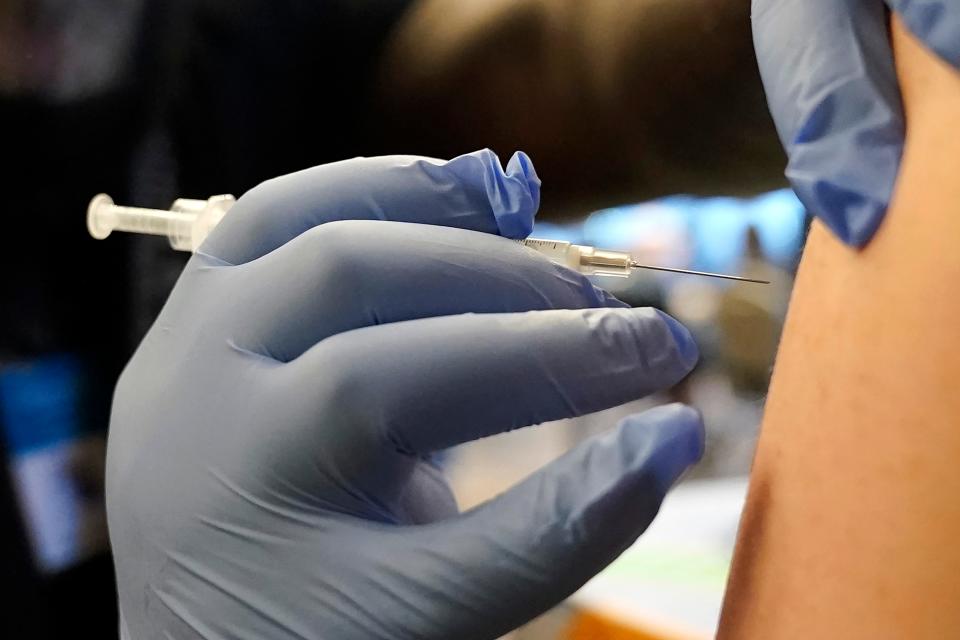How many long COVID cases in NY? Is it still a threat? Here's what we know (and don't)
- Oops!Something went wrong.Please try again later.
About 1 million New Yorkers have struggled with some form of long COVID since 2020, the latest studies suggest, but the full scope of suffering remains tough to pinpoint amid ongoing research.
The potentially life-altering long COVID illness — spanning diverse symptoms from fatigue and brain fog to chest pains and chronic cough that last weeks, months or years after an initial COVID-19 infection — also looms large as the virus spreads this fall and winter.

At the same time, doctors and scientists continue seeking potential causes of and treatments for long COVID. They also urged Americans to stay up to date on COVID-19 vaccination and booster doses, which have proven effective at reducing the risk of long COVID.
“Right now, we’re walking this fine line of encouraging people to have a normal life but to be cautious,” said Dr. Sanjay Sethi, who is heading up the Western New York Long COVID Initiative at University at Buffalo.
A mix of natural immunity following a COVID-19 infection and vaccination provides the best protection against long COVID, added Sethi, whose work includes building a regional long COVID registry.
But that protection doesn’t last forever, he noted.
“Immunity wanes and the (COVID virus) strains have changed,” Sethi said, “and both of those are good reasons to get a booster.”
How many long COVID cases in NY?

National research suggested more than 100 million Americans, or nearly one-third of the country, had a COVID-19 infection as of this spring. And household surveys estimated 10% of adults have had some form of long COVID.
But underreporting of COVID infections as well as gaps in the medical community’s diagnoses of long-COVID cases have raised concerns that suffering could be more widespread than currently understood.
COVID research: A report says the 2020 COVID wave hit earlier than realized. How that impacts the new wave
In New York, about 16% of adults reported ever experiencing long COVID, federal surveys from this summer show. That ranks 23rd highest among states, with the highest rates in more rural states such as West Virginia, Oklahoma and Mississippi (ranging from 18% to 21%).
New York has confirmed nearly 7.5 million COVID-19 cases, including nearly 6.1 million adults ages 20 and older. That means about 976,000 adults suffered through some form of long COVID, based on state data and federal surveys.
Is long COVID less likely now?

National surveys reported long COVID among adults dropped this summer as compared to last summer.
The rate declined from 7.5% to 6% among noninstitutionalized adults, and from 18.9% to 11% among adults reporting a prior COVID-19 case, the data show. One in four long-COVID sufferers say they had significant activity limitations, the study reported last month.
COVID resurgence: COVID is back in NY. What to know about schools, nursing homes and more
While promising, the research underscored that long COVID remained a threat and promoted continued vaccination efforts. It referred to studies that show vaccines reduce the risk of long COVID, if taken before getting the condition.
Other recent research also suggested long COVID is less likely after omicron than other variants, University of Minnesota reported, citing a study published in The Journal of Infectious Diseases. Currently, Omicron variant strains remain dominant globally.
Meanwhile, the National Institutes of Health this summer launched several clinical trials related to treatment for long-COVID patients, hoping to evaluate multiple treatments that may finally ease symptoms for millions worldwide.
The trials will include four potential treatments and lead to additional trials in the coming months that will test at least seven more treatments, including drugs, biologics, medical devices and other therapies, USA TODAY Network reported.
What has long-COVID registry in NY found?

About 850 people have signed up in the Western New York long-COVID registry that launched in September 2022, said Sethi, who is also a UB professor overseeing a long COVID recovery center and clinic.
While plenty of factors remain unclear, early findings suggest the worst cases of long-COVID symptoms — particularly lung or breathing symptoms — followed initial infections that required a transfer to an intensive care unit.
The more common long-COVID cases, however, followed mild to moderate initial infections, resulting in lingering neurological and general symptoms — with brain fog and fatigue being most common. Some long-COVID patients had underlying autoimmune conditions while others were reasonably healthy, Sethi said.
In other words, he added: “Almost anybody can get it.”
This article originally appeared on Rockland/Westchester Journal News: Long COVID in NY: How many cases, and is it still a threat?

